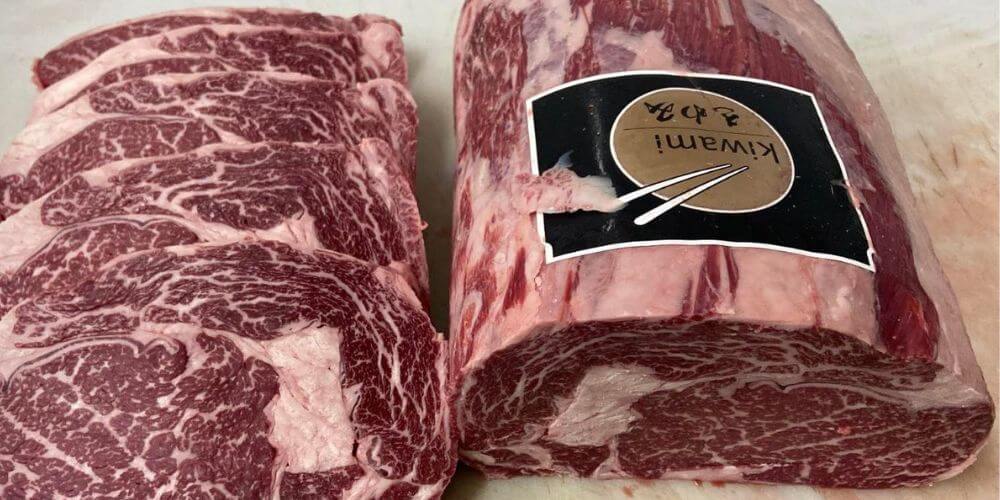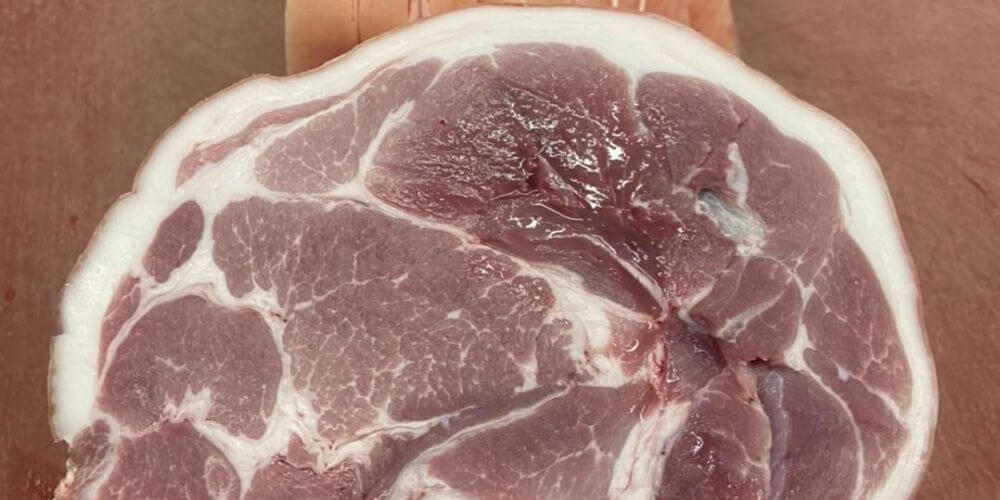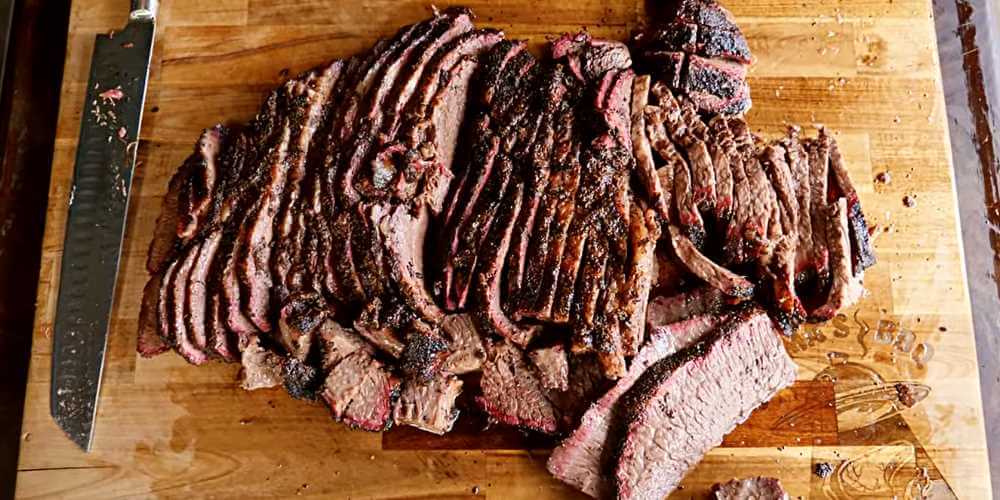
John Andrew
John Andrew, owner of The Meat Inn Place in Lilydale, boasts a legacy of butchery, offering exclusive grass-fed and free-range meats, and specialising in low-and-slow cuts. With a career inspired by his father, John’s passion and expertise have nurtured a reputable business distinguished by unique offerings like Kiwami Wagyu, driven by a commitment to quality and community service.
Decoding Organic Meat Labels: Your Butcher's Guide
Reading Time: 8 minutes and 37 seconds

Are those “organic” and “free range” meat labels at your local butcher giving you a headache? With so many claims thrown around, you’d be forgiven for feeling overwhelmed when trying to make sense of it all. As your friendly neighbourhood butcher at The Meat Inn Place, I get it—navigating the maze of certification logos and fine print requirements is confusing even for me sometimes!
But it doesn’t have to be so complicated. With many years behind the butcher’s block, I’ve clearly understood what all this organic jargon means on the ground level. And I’m here to impart some hard-won knowledge to help you become an informed consumer. Whether you care about animal welfare, environmental impact, or health and nutrition, this simple butcher’s guide will decode those organic meat labels so you can feel confident you’re getting what you paid for.
No more scratching your head in the shops for you! Let’s dive in and uncover what’s really behind those feel-good claims adorning your T-bone steaks, pork bellies, and shanks. With the right insight, you’ll be ready to ask your butcher the right questions and make ethical, sustainable meat purchases tailored to your priorities. The power is in your hands.
Understanding “Certified Organic” in Australia
Ever stared at a “certified organic” label, wondering what it truly meant? As your local butcher, let me shed some light on the Australian Certified Organic (ACO) standard, a symbol you can trust when it comes to ethical and sustainable meat production.
Think of it like this: the ACO BUD logo is more than just a fancy sticker. It’s a guarantee that the meat you’re buying meets rigorous standards.
The Heart of ACO Certification
ACO stands as Australia’s leading body for organic certification, setting the gold standard for organic production. Their stringent guidelines ensure that any product bearing the ACO BUD logo has met the highest organic standards. Here’s what sets ACO-certified products apart:
- No Synthetic Chemicals: ACO-certified products are free from synthetic fertilisers, pesticides, and genetically modified organisms (GMOs), ensuring natural, healthy produce and meat.
- Holistic Approach: Emphasising soil health, biodiversity, and a balance between agriculture and the environment, ACO promotes practices that benefit not just the produce but the entire ecosystem.
- Rigorous Quality Assurance: The presence of the ACO BUD logo is a testament to uncompromised quality, signifying that every ingredient has passed thorough checks to meet the Australian Certified Organic Standard.
Beyond organic purity, ACO’s holistic model means our farms nurture the interconnected web of soil health, water conservation, carbon drawdown, and ethical livestock stewardship. As a butcher shop invested in true farm-to-table transparency, we chose ACO because they share our whole systems approach – caring as much about the wellbeing of the animals and land as the integrity of the final product.
Choosing ACO-certified products means you’re not only opting for healthier, cleaner eating but also supporting practices that safeguard our planet for future generations. When you see the ACO BUD logo in our shop, rest assured, that you’re making a choice that benefits your health, our community, and the environment. That’s a commitment you can taste in every bite!
Diving Into Key Australian Organic Meat Labels
Navigating the maze of organic meat labels in Australia can be quite the task, but as your trusted local butcher, I’m here to share insights and personal experiences to help you understand what these labels really mean for quality, nutrition, and ethics. Let’s dive into some key terms: “Grass-fed” vs. “Grass-finished”, “Free-range”, and “Pasture-raised”.
Grass-Fed vs. Grass-Finished
Grass-fed simply means cattle eat some grass at certain times, but they may still be “finished” on grain. I’ve visited farms where grass-fed standards allowed feeding cattle grain for months before slaughter. In contrast, grass-finished cattle eat nothing but grass and forage their whole lives. This natural diet delivers higher omega-3s and antioxidants for better nutrition and flavour. It’s a difference I can attest to, both in the quality of the cut and the feedback from customers who swear by its superior taste.
Free-Range in the Australian Context
In Australia, “free-range” refers to how animals are housed and farmed. It means they have some access to the outdoors during daylight hours. But here’s the catch – it doesn’t necessarily mean they were grass-fed or pasture-raised. The size of the outdoor area and how often they access it can vary greatly. As a butcher, I ensure our free-range meats come from farms where the animals truly roam free, as much as possible, within the constraints of this definition.
Pasture-Raised: A Step Beyond
Now, “pasture-raised” takes things a step further. It means the animals are raised on natural pastures, mimicking their natural behaviour. They roam freely, graze on grass, herbs, and insects, and contribute to healthy soil ecosystems. This holistic approach ensures better animal welfare, a more natural diet, and a more sustainable farming system. This approach to farming significantly impacts the meat’s quality—something I’ve witnessed firsthand. The beef is not just tastier; it’s part of a sustainable cycle that benefits the soil and the environment.
From personal experience, the choice between grass-fed, grass-finished, free-range, and pasture-raised meats impacts not just the flavour and nutrition of the meat but also the ethical stance on animal welfare and environmental sustainability. Each visit to our shop is an opportunity for customers to learn more about where their meat comes from and make informed choices. Whether it’s the rich, nuanced flavour of grass-finished beef or the ethical satisfaction of choosing pasture-raised lamb, understanding these labels means you’re not just buying meat; you’re supporting a philosophy.
Your Local Butcher’s Advantage: Knowing the Source
Being in the meat business for many years already, I and my team take pride in going the extra mile to bring you the best possible meat. This is why I’m passionate about direct sourcing from local, ACO-certified farms. This means I visit and build relationships with the farmers I work with, allowing me to:
- Witness their practices firsthand: I see how the animals are raised, the feed they receive, and the care they’re given. This personal connection allows me to ensure the highest ethical and sustainability standards are met.
- Guarantee quality: By cutting out the middleman, I can bring you fresher, high-quality meat that is often traceable back to the specific farm it came from.
But it’s not just about the source, it’s about open communication. I believe in transparency and fostering a dialogue with my customers. You deserve to know where your food comes from and how it’s raised. That’s why I’m always happy to answer any questions you have about the meat in my shop. When you choose to shop with us, you’re supporting a network of local farmers who are as committed to animal welfare and environmental sustainability as we are. Together, we’re not just making a difference on your plate; we’re contributing to a healthier planet.

Making Informed Choices as a Consumer Buying Meats
In my years serving as your local butcher, I’ve learned the immense value of making informed choices about the meat we consume. It’s not just about what’s on your plate; it’s about understanding the journey from farm to fork and the impact of these choices on our health, community, and environment. Here’s how you, as a wise consumer, can navigate the meat world with confidence and conscience.
Ask Questions! Never hesitate to ask your butcher about the origin, certifications, and feeding practices of the meat you’re considering. Whether it’s beef, lamb, pork, or poultry, knowing how it was raised and processed can influence your buying decision. I’ve always encouraged my customers to enquire more about the products they buy. It’s through these conversations that I’ve seen people become more engaged and mindful about their food choices.
Know Your Certifications Australia is home to some of the world’s most rigorous and respected meat certifications. Recognising these can be your shortcut to making healthier and more ethical choices. Look out for certifications like RSPCA Approved, which ensures animal welfare standards are met, or the Grass-Fed Cattle Association, which signifies that animals were fed a natural diet and lived in better conditions. Understanding what these certifications stand for can guide you towards meat that aligns with your values.
Seek the “Budgie” Logo The ACO Certified Organic “Budgie” logo is your beacon for genuine organic meat in Australia. Seeing this logo on your meat means it’s passed strict criteria for organic certification, including being raised without synthetic pesticides, fertilisers, or GMOs. It’s a logo I point out to my customers, ensuring they know it signifies quality and integrity.
Supporting Australian Farmers Buying local isn’t just about enjoying fresher produce; it’s about supporting the Australian farmers who dedicate their lives to ethical and sustainable practices. Each purchase of locally sourced meat contributes to the livelihoods of these hardworking individuals and helps sustain farming practices that are kinder to animals and the environment. I’ve had the privilege of visiting many of the farms we source from, and I can personally attest to the care and dedication of these producers. Their commitment to quality and sustainability is what inspires me to bring their products to your table.
A Personal Touch I remember a conversation with a customer, a mother looking to make healthier choices for her family. With the vast choices on our meat display, she was obviously overwhelmed by the labels and terms. We walked through the certifications, discussed the importance of organic practices, and explored the benefits of supporting local farms. Weeks later, she returned, sharing how these changes had not only improved her family’s meals but also their appreciation for the food they ate. It was a reminder of the power of informed choices, which you now have after reading this!
Shop Smart at The Meat Inn Place
I hope this butcher’s insider perspective has helped decode some of the organic meat label jargon and empowered you to make informed choices. By asking questions and really understanding what’s behind terms like “grass-fed,” “free-range,” and “certified organic,” you can support Australian farms aligned with your values.
At our butcher shop in Lilydale, The Meat Inn Place, we’re more than just a destination for premium meat; we’re a hub for community education and engagement. Our doors are always open for those looking to deepen their understanding of where their meat comes from and the practices behind it. I’ve had countless conversations with customers that began with a simple question about our products and evolved into meaningful discussions about the impact of their food choices. It’s these interactions that truly embody the essence of our shop. You deserve to feel confident and empowered about the choices you make, and we’re here to help you every step of the way.
Organic Meat FAQ
Discovering where to buy organic meat in Australia is a journey towards healthier eating and ethical consumerism. As an experienced butcher, I’m committed to guiding you through the best options for sourcing high-quality, organic meat.
- Specialist Butcher Shops: These are your go-to for premium, ethically sourced organic meat. Look for butcher shops like ours at The Meat Inn Place that supply locally and ethically sourced meats.
- Farmers’ Markets: Support local producers and find the freshest organic options by checking out your local farmers’ markets.
- Major Supermarkets: While selection may be limited, some larger supermarkets offer organic meat options, making them a convenient choice.
In summary, whether you’re visiting a specialist butcher shop like The Meat Inn Place, exploring local farmers’ markets, or browsing the aisles of your nearest supermarket, Australia offers numerous avenues for purchasing organic meat. Prioritising organic produce is not just a step towards healthier eating but also a choice that supports ethical farming practices and sustainability.
Diving into the taste and texture of organic vs. non-organic meat, I’ve noticed organic offers a richer flavour, thanks to natural farming practices omitting artificial additives. This distinct taste stems from a unique amino acid profile in organic meats. Though texture differences are subtle, organic options might feel slightly different, with factors like diet and health playing a role. Personally, I find organic beef to have a more savoury edge.
Taste is subjective, and preference varies. I recommend trying both to see which aligns with your palate. Remember, choosing between organic and non-organic should also factor in quality, sustainability, and ethical farming practices.
Choosing organic meat comes down to personal preferences and priorities, with health, environmental impact, and animal welfare at the forefront. From my perspective, organic meat is a healthier option, boasting up to 50% more omega-3 fatty acids and lower saturated fats than its non-organic counterparts. It’s ideal for those looking to avoid synthetic pesticides and antibiotics.
Environmentally, organic farming supports more diverse ecosystems, enhancing soil health and biodiversity—a plus for sustainable living advocates. Animal welfare is also a significant advantage, as organic practices ensure animals are raised without synthetic chemicals on organic feed.
However, cost is a consideration. Organic meat often comes with a higher price tag due to the intensive farming practices involved. My advice? Budget permitting, mixing organic with non-organic meats in your diet can provide a balanced intake of nutrients while supporting various ethical and environmental benefits.

